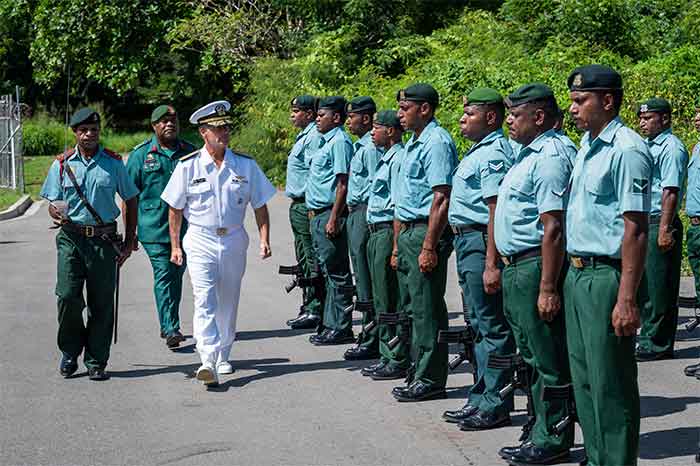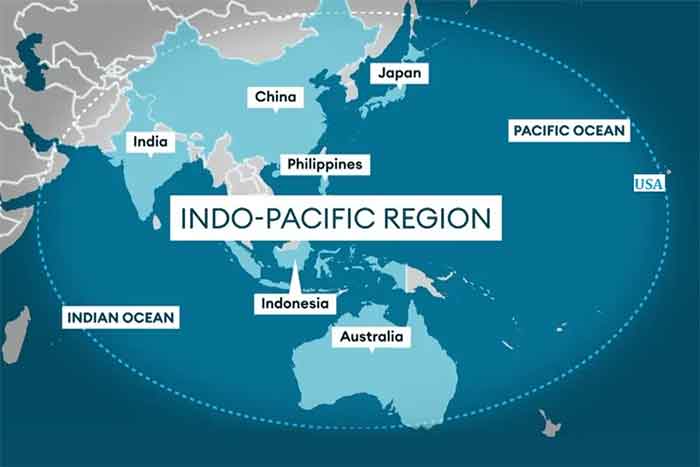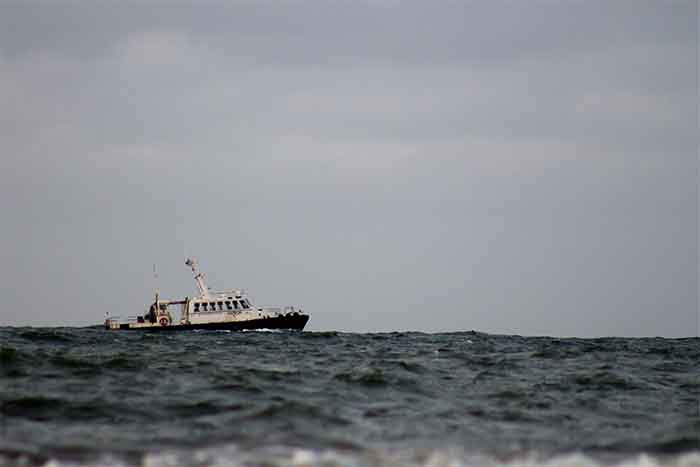
For some time, Washington has been losing its spunk in the Pacific. When it comes to the Pacific Islands, a number have not fallen – at least entirely – for the rhetoric that Beijing is there to take, consume, and dominate all. Nor have such countries been entirely blind to their own sharpened interests. This largely aqueous region, which promises to submerge them in the rising waters of climate change, has become furiously busy.
A number of officials are keen to push the line that Washington’s policy towards the Pacific is clearly back where it should be. It’s all part of the warming strategy adopted by the Biden administration, typified by the US-Pacific Island Country summit held last September. In remarks made during the summit, President Joe Biden stated that “the security of America, quite frankly, and the world, depends on your security and the security of the Pacific Islands. And I really mean that.”
Not once was China mentioned, but its ghostly presence stalked Biden’s words. A new Pacific Partnership Strategy was announced, “the first national US strategy for [the] Pacific Islands”. Then came the promised cash: some $810 million in expanded US programs including more than $130 million in new investments to support, among other things, climate resilience, buffer the states against the impact of climate change and improve food security.
The Pacific Islands have also seen a flurry of recent visits. In January this year, US Indo-Pacific military commander Admiral John Aquilino popped into Papua New Guinea to remind the good citizens of Port Moresby that the eyes of the US were gazing benignly upon them. It was his first to the country, and the public affairs unit of the US Indo-Pacific Command stated that it underscored “the importance of the US-Papua New Guinea relationship” and showed US resolve “toward building a more peaceful, stable, and prosperous Indo-Pacific region.”
In February, a rather obvious strategic point was made in the reopening of the US embassy in the Solomon Islands. Little interest had been shown towards the island state for some three decades (the embassy had been closed in 1993). But then came Beijing doing, at least from Washington’s perspective, the unpardonable thing of poking around and seeking influence.
Now, Prime Minister Manasseh Sogavare finds himself at the centre of much interest, at least till he falls out of favour in the airconditioned corridors of Washington. His policy – “friends to all, enemy to none” – has become a mantra. That much was clear in a May 2022 statement. “My government welcomes all high-level visits from our key development partners. We will always stand true to our policy of ‘Friends to All and Enemies to None’ as we look forward to continuing productive relations with all our development partners.”
For the moment, the US interim representative, Russell Corneau, was satisfied in noting that the embassy would “serve as a key platform” between Washington and the Solomon Islands. US Secretary of State Antony Blinken, in fairly torturous language, declared that the reopening “builds on our efforts to place more diplomatic personnel throughout the region and engage further with our Pacific neighbours, connect United States programs and resources with needs on the ground, and build people-to-people ties.” Sogavare, adopting his hard-to-get pose, absented himself from the ceremony.
This month, the Deputy Assistant to the US President and Coordinator for the Indo-Pacific National Security Council Kurt Campbell has been particularly busy doing his rounds. The Solomon Islands has been of particular interest, given its security pact with Beijing. No sooner had Sogavare had time to compose himself after two high profile visits from Japan and China, there was Campbell and his eight-member delegation.
“We realise that we have to overcome in certain areas some amounts of distrust and uncertainty about follow through,” Campbell explained in his usual middle-management speak to reporters in Wellington. “We’re seeking to gain that trust and confidence as we go forward. Much of what we are doing has been initiated by the president, but I want to underscore that it’s quite bipartisan.”
In Honiara, Campbell was forward in admitting that the US had not done “enough before” and had to be “big enough to admit that we need to do more, and we need to do better.” Doing more and doing better clearly entailed dragging out from Sogavare a promise that his country would not create a military facility “that would support power projection capabilities” for Beijing.
Earlier in the month, Qian Bo, China’s Pacific Island envoy, was also doing his bit to win support for the cause. His Vanuatu sojourn was a wooing effort directed at the Melanesian Spearhead Group, comprising Fiji, Papua New Guinea, the Solomon Islands, Vanuatu and the Kanak independence movement in New Caledonia. But as with any muscle-bound hegemon seeking to impress, the crumbs left were treated with some circumspection.
A leaked letter from Micronesia’s President David Panuelo took a more dim view of China’s offerings. In the March 9 document, the cogs and wheels of calculation were busy, taking into account the US proposal of US$50 million into Micronesia’s national trust fund and annual financial assistance of US$15 million. “All of this assistance, of course, would be on top of the greatly added layers of security and protection that come from our country distancing itself from the PRC.” Micronesian officials, he charged, had been the targets of bribes and offers of bribes from the Chinese embassy.
Not all his colleagues in the Pacific are in accord with Panuelo, though the view suggests that both Beijing and Washington are finding, in these small countries, political figures more than willing to exploit the rivalry. To that end lie riches.
Dr. Binoy Kampmark was a Commonwealth Scholar at Selwyn College, Cambridge. He currently lectures at RMIT University. Email: [email protected]













































